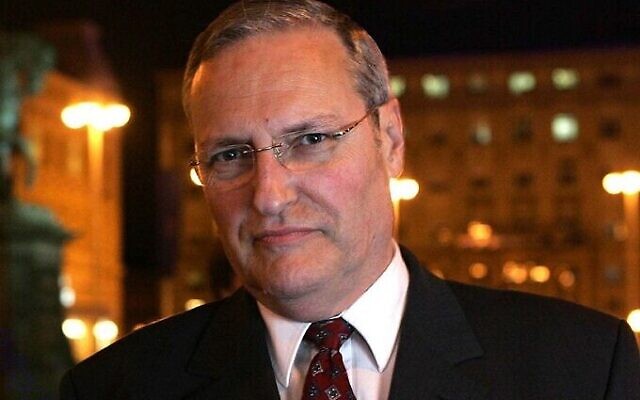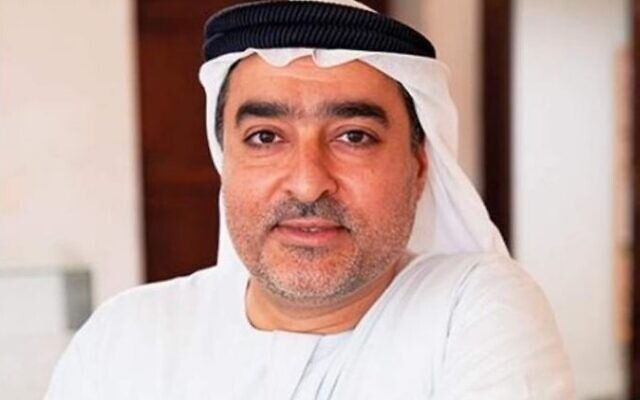Israeli Experts Address Jewish Hatred
Jerusalem Press Club hosts program for International Holocaust Remembrance Day.

While it has been widely reported that antisemitic incidents are rising and antisemitic expressions have come out of the mouths of celebrities, according to Efraim Zuroff, director of the Simon Wiesenthal Center Office in Jerusalem, antisemitism is under-reported and most incidents “are not ever submitted to the police.”
In New York, he added for emphasis, there has been only one conviction of antisemitism. Zuroff, an American-born Israeli historian and Nazi hunter, was speaking at a virtual international program, sponsored by the Jerusalem Press Club days before International Holocaust Remembrance Day, this year on Jan. 27.
He also noted that, in addition to actual antisemitic incidents, “Holocaust denial has been under the radar,” and must be called out by governments around the world.
Zuroff would know. He is the coordinator of Nazi war crimes research worldwide for the Wiesenthal Center, and the author of its annual “Status Report” on the worldwide investigation and prosecution of Nazi war criminals, which includes a list of most-wanted Nazi war criminals. Zuroff, who was granted several honors for his work during his long career, published more than 450 articles about the Holocaust and other issues concerning the Jewish world, both in the press and in academic journals.

But he was not the only speaker at the Jerusalem Press Club event. Ambassador Colette Avital, chairperson of the Center Organization of Holocaust Survivors in Israel, vice president of the Conference of Material Claims Against Germany and secretary general of the World Jewish Restitution Organization, said although she is not an expert on antisemitism, per se, she claims “social media has an important role in promoting antisemitism. It has enabled people to promote racism and antisemitism.”
She called the Holocaust, or Shoah, as it is referred to in Israel, as “unprecedented in Jewish history and in world history” because it was organized by a government. But it didn’t happen “out of the blue.” Anti-Jewish laws preceded the Shoah, starting in 1933. She said the indoctrination of people “made it possible to see Jews as cockroaches. The government could not have done what it did without the people.”
Avital is a former member of the Israeli legislature, or Knesset, where she was deputy speaker and a member of several committees including the Absorption and Diaspora Affairs Committee. Prior to her political career, she served in the Israeli Diplomatic Corps, where she attained the highest-ranking position for a woman at the time.
Both speakers were questioned by Talia Dekel, representing the Jerusalem Press Club. There was also a pre-recorded interview with Ahmed Obaid Al-Mansooru, founder of the Crossroads of Civilizations Museum in Dubai, which includes the “We Remember” exhibition about the Holocaust, the first in the Arab World. In fact, Al-Mansooru recounted how he started the museum in his house, on a private basis, and only brought it to the public in 2012.
When asked how people respond to the exhibit, Al-Mansooru said, “When people come to the museum, they leave their critical hats outside.” He recalled the so-called Golden Age when Jews and Arabs lived together in peace. “We can go back to that. The museum shows people that we can get along.”

Avital said she is “full of admiration for Mr. Al-Mansooru for his courage and pioneering.” But that kind of work in the Arab world, as well as in Europe, “will take many years to change societies. I don’t think antisemitism will disappear.” She also pointed out that antisemitism doesn’t exist in Asia and the “Chinese have tremendous admiration for Jewish people.”
Zuroff acknowledged that there’s a problem getting countries to change their historical narrative. Speaking of Eastern Europe, he said that the West assumed that when countries moved from Soviet-era dictatorships to western democracies, that they would adopt the western narrative. “Instead, we got a totally false narrative,” he said, adding that the European Union should be more proactive in that respect.
Avital suggested that countries need to appoint someone on the national level who can combat antisemitism. Born in Romania, she noted that the country has passed a law that Holocaust education must be provided in high schools. “I’m for education at every level,” she underlined. Germany is one country that has emphasized Holocaust education. “Other nations can do the same. Austria finally has.”
- News
- World
- Jan Jaben-Eilon
- antisemitic incidents
- Antisemitism
- Efraim Zuroff
- Simon Wiesenthal Center Office
- Jerusalem
- Nazi Hunter
- Jerusalem Press Club
- International Holocaust Remembrance Day
- Colette Avital
- Center Organization of Holocaust Survivors
- Conference of Material Claims Against Germany
- World Jewish Restitution Organization
- Shoah
- Knesset
- Absorption and Diaspora Affairs Committee
- Israeli Diplomatic Corps
- Talia Dekel
- Ahmed Obaid Al-Mansooru
- Crossroads of Civilizations Museum



comments